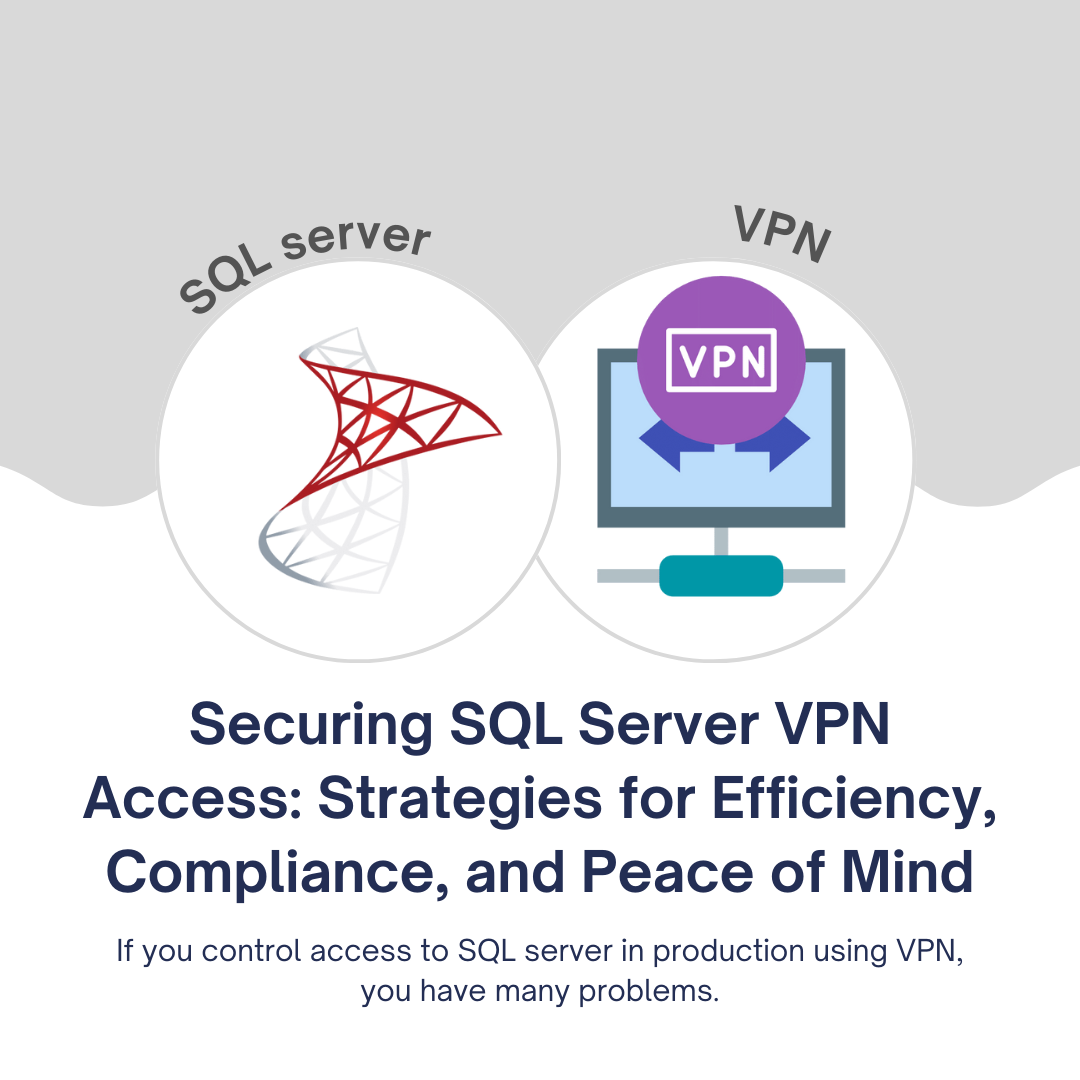Securing SQL Server VPN Access: Strategies for Efficiency, Compliance, and Peace of Mind

In the realm of managing SQL Server access via VPN, there are often unspoken challenges that need addressing. This article explores the five most prominent problems associated with SQL Server VPN access, the ramifications they carry, and practical strategies to mitigate their impact. Let's dive into these issues and discover how to safeguard your SQL Server infrastructure more effectively.
The Significance of Swift Access in Production
Efficiency is paramount when it comes to accessing SQL Servers in a production environment. Swift data access is essential for troubleshooting, bug fixes, and incident resolutions, directly impacting the overall speed and reliability of your product. Regrettably, many teams employ suboptimal access solutions, which can either compromise security or hamper workflows.
Unraveling the Five Major Problems
Before delving into the solutions, let's dissect the five significant challenges that plague SQL Server VPN access:
1. Single Sign-on & Multi-Factor Authentication (MFA)
Inadequate authentication methods can expose your SQL Server infrastructure to security breaches and unauthorized access.
2. Audit Trials and PII Protection
A lack of robust audit trails and personally identifiable information (PII) protection mechanisms poses significant risks, especially for industries that require stringent compliance, such as GDPR, PCI, SOC2, and HIPAA.
3. Developer Experience
Cumbersome workflows with numerous steps hinder developer productivity, impacting the speed at which they can access SQL Servers and contribute to your project.
Addressing the Issues: The 80/20 Rule
To tackle these problems effectively, consider applying the 80/20 rule, focusing on the vital 20% that yields 80% of the results. Here are actionable steps to get started:
1. Incorporate SQL Server into Your Existing Systems
You don't necessarily need to overhaul your entire infrastructure. Instead, integrate SQL Server access with systems you're already using, such as Google Workspaces. Implementing Single Sign-on (SSO) and recording SQL Server sessions can be simplified with cloud-based solutions like AWS/Google Cloud's Cloud Shell or tools like Runops.
2. Prioritize Features Relevant to Your Industry
Different industries have varying access requirements. Tailor your approach accordingly:
- Developer-Centric Industries: Focus on streamlining the developer experience, SSO, and MFA to reduce the number of steps needed for SQL Server access.
- Highly Regulated Industries: Prioritize security and compliance, even if it means a more extensive access process. Ensure that audit trails and compliance mechanisms are in place.
3. Leverage Comprehensive Access Solutions
Streamline your infrastructure by using tools that cover multiple access needs, including SQL Server, AWS/GCP, other databases, Kubernetes, and servers. Consolidating access management into a single tool simplifies operations and reduces complexity.
4. Introduce Friction to Unwanted Access Methods
Sometimes, the fastest access methods may not align with security and compliance requirements. To encourage the adoption of best practices, introduce controlled friction:
- Implement a form submission process alongside the current access method to discourage the rapid yet insecure approach.
- Make unwanted access methods more challenging by adding steps or requests, gradually pushing teams toward the desired, secure method.
By making the right access method the easiest one, you can steer your organization towards improved security and compliance without disrupting productivity entirely.
Conclusion
Effectively managing SQL Server VPN access requires a balanced approach that addresses security, compliance, and user experience. By prioritizing the most critical aspects, leveraging versatile access solutions, and gradually steering your teams toward best practices, you can fix the hidden vulnerabilities associated with SQL Server VPN access, ensuring both efficiency and security in your production environment.
